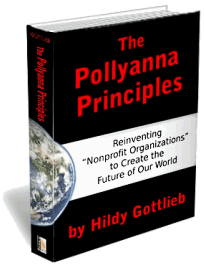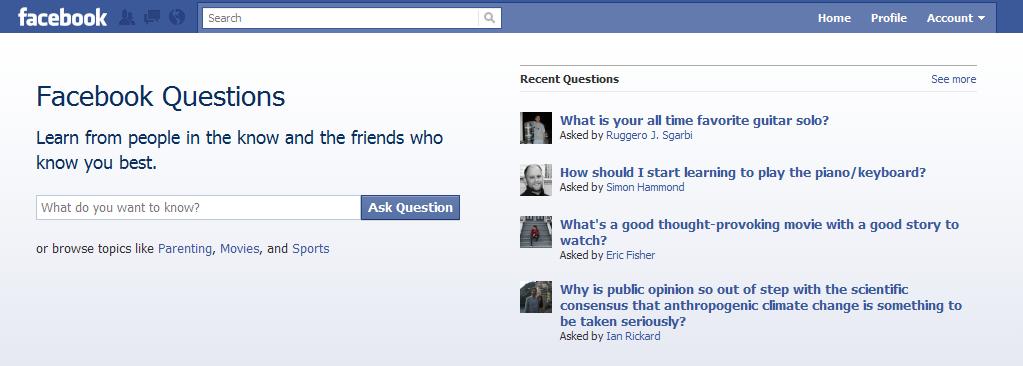 It is two years since Hildy Gottleib’s The Pollyanna Principles came out but I’ve only come to read it over the past few weeks. I regret not reading it sooner, so clearly does it articulate my frustrations, aspirations and beliefs about the social change sector.
It is two years since Hildy Gottleib’s The Pollyanna Principles came out but I’ve only come to read it over the past few weeks. I regret not reading it sooner, so clearly does it articulate my frustrations, aspirations and beliefs about the social change sector.
Hildy clearly articulates the potential of what she calls Community Benefit Organizations (like Ashoka she believes that you should not, cannot, define a sector by what it isn’t but rather by what it is). The limitations of our thinking come through in this narrow conception of ourselves – that we are not for profit, first and foremost, rather than being for something – just as it does in the technocratic malaise so many community benefit organizations find themselves in. Too often the leaders and especially the boards of the organizations that serve us are caught up in a problems-focused, and have lost track of the true change they are striving, or could be striving, to bring about.
This is not simply an issue for community benefit organizations of course but for all of us. It is too easy to dismiss the notion of actually solving the problems, overcoming the challenges, which confront us. Instead we settle for incremental goals – “increase service delivery by 5% in the next calendar year” – rather than aiming our sights resolutely on what matters most, our vision for the future we want for our communities.
As the name suggests The Pollyanna Principles is a set of principles to assist community benefit organizations to create the future they seek for their communities. They are seemingly conceptual but as Hildy shows they are actually a deeply practical, powerfully simple and clear-headed approach to creating the real changes we need.
The principals are:
Principle #1:We accomplish what we hold ourselves accountable for.
Principle #2: Each and every one of us is creating the future every day, whether we do so consciously or not.
Principle #3: Everyone and everything is interconnected and interdependent, whether we acknowledge that or not.
Principle #4: "Being the change we want to see" means walking the talk of our values.
Principle #5: Strength builds upon our strengths, not our weaknesses.
Principle #6: Individuals will go where systems lead them.
Reading The Pollyanna Principals has made me pause and reflect on my successes and failures (sorry, learning experiences), on when I felt most inspired and the brick walls run into (crashed through) along the way. There is much wisdom here I wish I had been exposed to ten years ago. For anyone interested in change, and especially those in positions of authority in the organizations we need to perform at their best in service to community, this is an essential book. I know the issues Hildy raises and the approaches she proposes will continue to resonate in my mind for a long time.
In other words this has given me the best gifts a book can give: lots to think about, and hope for the future.
To celebrate the second anniversary you can buy The Pollyanna Principles at a discount right now. You can also read the first four chapters online.
Principle #2: Each and every one of us is creating the future every day, whether we do so consciously or not.
Principle #3: Everyone and everything is interconnected and interdependent, whether we acknowledge that or not.
Principle #4: "Being the change we want to see" means walking the talk of our values.
Principle #5: Strength builds upon our strengths, not our weaknesses.
Principle #6: Individuals will go where systems lead them.

